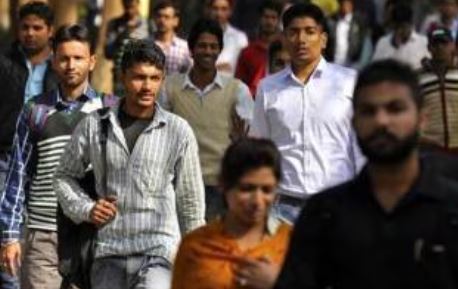Introduction: The Urgency of Job Creation
The persistent disconnect between India’s economic growth and job creation has sparked profound concerns among economists and policymakers alike. Despite decades of robust GDP expansion, the problem of inadequate employment opportunities continues to haunt the nation’s socio-economic fabric. Recent elections underscored the electorate’s growing discontent, highlighting joblessness as a pivotal issue that demands immediate attention and innovative solutions.
The Imperative of Skill Enhancement
A simplistic reliance on economic growth to organically resolve the job crisis has proven futile over five decades of empirical data on employment and unemployment surveys. The stark reality remains: India’s economic strides have not translated into commensurate job opportunities, posing a potent threat to social stability. Addressing this multifaceted challenge mandates a concerted shift towards strategic policies that foster skill development and enhance employability across diverse sectors.
Lessons from Rural Employment Schemes
India’s foray into rural employment guarantee schemes, initiated in 2005, provides a critical learning ground. While these schemes offer temporary relief through manual labor, significant implementation gaps persist—such as delayed wage payments and underutilized employment days per household. The potential expansion of such schemes into urban settings, as proposed by Jean Dreze’s “Decentralised Urban Employment and Training” (DUET) initiative, holds promise but demands meticulous deliberation due to substantial fiscal implications.
Vocational Education: A Strategic Imperative
To redress the underlying skill deficit, a robust mass-scale vocational education program is indispensable. Drawing inspiration from global models like Germany’s dual vocational training system and innovative projects such as Kenya’s Youth Employment and Opportunities Project, India must urgently adopt a similar framework. Such programs not only impart job-relevant skills but also forge symbiotic partnerships between educational institutions and industry stakeholders, ensuring seamless integration into the workforce.
Revamping Subsidy Structures
India’s current subsidy regime, predominantly skewed towards capital incentives, inadvertently promotes capital-intensive investments over labor-intensive ventures. A paradigm shift towards wage subsidies for large-scale enterprises could incentivize job creation while mitigating the adverse effects of mechanization on employment. This strategic realignment of incentives aims to recalibrate investment patterns towards labor-intensive sectors, fostering sustainable employment growth.
Supporting Non-Farm Enterprises
Beyond traditional sectors, enhancing technical assistance and extension services to non-farm household enterprises emerges as another pivotal strategy. By equipping micro-entrepreneurs with essential management skills and technical expertise, India can stimulate entrepreneurial ventures that serve as engines of job creation in local economies. Similar initiatives in community health and caregiving sectors underscore the transformative potential of targeted technical support in catalyzing sustainable employment opportunities.
Addressing Income Disparities
Mitigating income inequality is central to bolstering aggregate demand and catalyzing widespread job creation. Proposals for a basic income supplement for marginalized sections—akin to global models—offer a pragmatic pathway towards equitable economic growth. By redistributing fiscal resources from affluent segments through enhanced taxation and reducing subsidies, India can fund such inclusive welfare measures without compromising fiscal prudence.
Conclusion: A Call to Action
In conclusion, India stands at a crossroads where conventional paradigms of job creation must yield to innovative and inclusive policies. By prioritizing skill enhancement, restructuring subsidy frameworks, and embracing social welfare initiatives like basic income supplements, India can forge a path towards sustainable economic growth that benefits all strata of society. The imperative now lies in political resolve and visionary leadership to enact these transformative reforms and chart a prosperous future for India’s workforce.
Summary Table:
| Key Learning Points |
|---|
| Need for skill-focused job creation strategies |
| Lessons from global vocational education models |
| Role of wage subsidies in incentivizing job-intensive investments |
| Implications of basic income supplements for income equality |

Sunil Garnayak is an expert in Indian news with extensive knowledge of the nation’s political, social, and economic landscape and international relations. With years of experience in journalism, Sunil delivers in-depth analysis and accurate reporting that keeps readers informed about the latest developments in India. His commitment to factual accuracy and nuanced storytelling ensures that his articles provide valuable insights into the country’s most pressing issues.



